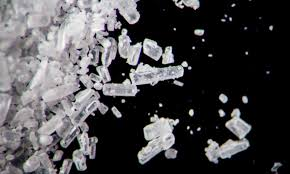Meth Addiction Symptoms & Withdrawal
Immediate
Placement Available at our Top-Rated Treatment Centers.
Please call us at (855) 410-4488. We work
with most major insurance providers and offer flexible payment
options!
Atrium Addiction Care offers a variety of treatment choices and programs for individuals struggling with drug or alcohol addiction. Our inpatient treatment programs are designed for those who have more severe substance use problems and require 24-hour care. We admit both voluntary and involuntary patients.

Methamphetamine, commonly known as meth, is a highly addictive stimulant drug that affects the central nervous system. Meth addiction has become a major public health issue worldwide due to its severe consequences and high rates of relapse among users attempting to quit street drugs.
The use of meth can lead to several physical and psychological symptoms, as well as withdrawal symptoms upon cessation. The purpose of this article is to explore the various signs and symptoms of meth addiction, including those experienced during methamphetamine withdrawal process.
Additionally, we will discuss how Atrium Addiction Care provides comprehensive treatment programs for individuals struggling with the meth addiction symptoms withdrawal side. By understanding these symptoms and seeking appropriate care from professionals, individuals with meth addiction can begin their journey towards recovery and long-term sobriety.
The Dangers Of Meth Use
Meth addiction is a serious and potentially life-threatening condition. Those who suffer from meth addiction are at risk of experiencing a range of negative physical, psychological, and social effects. Meth use can lead to changes in brain chemistry that make it difficult for individuals to stop using the drug, even when they want to.
Symptoms of meth addiction may include increased energy levels, decreased appetite, agitation or irritability, hallucinations, paranoia, and violent behavior. These symptoms can be particularly dangerous if left untreated as they can increase the likelihood of accidents or injuries.
Additionally, withdrawal from meth can cause a range of unpleasant symptoms such as fatigue, depression, anxiety, cravings, and psychosis.
The dangers of meth use cannot be understated. Long-term use of this powerful stimulant can result in irreversible damage to both the body and mind. Some potential consequences repeated meth using include tooth decay (known as 'meth mouth'), skin sores and infections due to picking at the skin while high on the drug, heart attacks or strokes caused by cardiovascular strain from prolonged use, permanent brain damage leading to cognitive impairment or dementia-like symptoms and death due to overdose or related complications.
Identifying The Signs Of Meth Addiction
The Dangers of Meth Use have been well-documented, and it is crucial to understand the signs of meth addiction in order to seek appropriate treatment. Methamphetamine addiction can wreak havoc on an individual's physical and mental health if left untreated. Symptoms of meth use are both visible in a user's appearance as well as different factors such as their behavior.
Meth abusers may exhibit several symptoms of meth addiction that may differ depending on the severity of their usage. Some common behavioral changes include increased aggression, irritability, paranoia, and decreased appetite leading to significant weight loss. Physical manifestations repeated meth use may include dilated pupils, skin sores or lesions from picking at imaginary bugs, rotting teeth known as 'meth mouth,' and tremors.
Identifying addiction signs symptoms early on can help prevent long-term damage caused by methamphetamine addiction. Treatment options for those struggling with meth addiction vary but often involve intensive therapy sessions coupled with medication-assisted detoxification programs.
It is essential to remember that recovery is a lengthy process that requires patience and commitment from the individual seeking treatment along with support from loved ones and professionals alike.
The Physical And Psychological Symptoms Of Meth Addiction

Meth addiction is a severe problem that can lead to various physical and psychological symptoms. These symptoms may range from mild to severe, depending on the duration of meth abuse and individual factors such as age, genetics, and overall health condition.
Some common signs of meth addiction include weight loss, dental problems, skin sores, insomnia, paranoia, hallucinations, anxiety, depression, and suicidal thoughts.
Withdrawal from meth can be challenging for individuals who have become addicted to this drug. The methamphetamine withdrawal from process typically involves intense cravings for methamphetamine coupled experience severe depression along with feelings of fatigue and depression. Other withdrawal symptoms may include nausea, vomiting, diarrhea, muscle pain or weakness, tremors or seizures.
It's essential to seek professional treatment when withdrawing from meth addiction to ensure safe detoxification and minimize the risk of relapse. The effects of methamphetamine use are not only harmful but also long-lasting if left untreated. However, effective treatment options exist that address both physical symptoms and psychological aspects of meth addiction.
Meth addiction treatment programs may involve medication-assisted therapy (MAT), behavioral therapies like cognitive-behavioral therapy (CBT) or contingency management (CM), support groups like Narcotics Anonymous (NA), and holistic treatments like yoga or meditation. Seeking help for meth addiction can provide a pathway towards recovery and improved quality of life in the future.
Understanding The Meth Withdrawal Process
The physical and psychological symptoms of meth addiction can be quite severe. Some typical indications of methamphetamine abuse include high blood pressure, rapid heart rate, elevated body temperature, insomnia severe depression, anxiety, paranoia, hallucinations, delusions, and aggression. Meth addicts may also typically experience a lack of appetite and extreme weight loss due to the drug's effects on their metabolism.
Understandably, quitting methamphetamine abuse is challenging because it results in withdrawal symptoms that can make recovery difficult for those addicted to methamphetamine. The process of withdrawing from meth involves various stages that are marked by different effects on the individual who is trying to quit using the drug.
In many cases, individuals undergoing crystal meth withdrawal often experience intense cravings which can lead them back into using again. The effects of crystal meth withdrawal can last anywhere from several days up to a few weeks depending on how long an individual was addicted to the substance as well as their overall health condition.
During this time period, it is essential for anyone with a history of being addicted to methamphetamine not to try quitting cold turkey without medical supervision since they could suffer life-threatening complications during detoxification such as seizures or cardiac arrest.
Coping With Meth Withdrawal Symptoms

Meth addiction is a serious condition that can have detrimental effects on both physical and mental health. Withdrawal from meth use can be difficult to manage, as it often results in intense cravings, anxiety, and depression. Coping with these symptoms is crucial for individuals seeking to overcome their addiction.
One effective method of coping with crystal meth withdrawal symptoms is through addiction treatment programs. Inpatient treatment facilities offer 24/7 medical supervision and support to help patients safely detox from the drug. These programs also provide therapy and counseling services to address underlying issues related to addiction and develop strategies for managing cravings and triggers in the long-term.
It's important to note that the effects of meth abuse can vary depending on individual factors such as frequency and duration of use. Some individuals may experience more severe methamphetamine withdrawal symptoms than others. However, with proper care and management, it is possible to successfully cope with meth withdrawal symptoms and achieve lasting recovery from addiction.
Treatment Options For Meth Addiction At Atrium Addiction Care
At Atrium Addiction Care, detoxification is an important part of the treatment process for meth addiction, as it helps to cleanse the body of the toxin. Following detox, rehabilitation is then employed, which helps to identify and address underlying mental health issues that may have led to the addiction.
Aftercare programs have been developed to provide additional support post-treatment, such as individual counseling and support groups, which can help to reduce the risk of relapse. Furthermore, Atrium Addiction Care also provides relapse prevention training and skills-building workshops to help sustain long-term recovery.
In addition, lifestyle modifications, such as increased physical activity, are also encouraged to help support the recovery process. Finally, Atrium Addiction Care also offers family education and therapies designed to foster a more positive home environment.
Detoxification
Detoxification is a critical component of the addiction treatment program at Atrium Addiction Care for individuals struggling with meth addiction. The process medical detox that involves removing toxic substances from the body and managing withdrawal symptoms to ensure a safe recovery journey is meth detox is.
Meth addiction symptoms can manifest in various ways, including physical changes such as weight loss, dental problems, and skin sores, as well as psychological issues like anxiety, depression, paranoia, and hallucinations. Withdrawal management during detoxification aims to minimize these unpleasant effects while helping patients adjust to abstinence safely.
Withdrawal is an inevitable part of drug rehab and occurs when someone stops using drugs after prolonged use or abuse. In the case of meth addiction treatment, withdrawal can be particularly challenging due to the severity of meth withdrawal timeline its symptoms. These may include fatigue, insomnia, irritability, intense cravings for methamphetamine, nausea/vomiting/diarrhea, muscle/joint pain, tremors/seizures/convulsions.
At Atrium Addiction Care's addiction treatment program, our team of healthcare professionals provides comprehensive detoxification services tailored to meet individual needs. We offer medical supervision 24/7 throughout the detox process to monitor vital signs closely and provide medication-assisted therapy if necessary.
Our goal is not only to help patients overcome their dependence on meth but also to prepare them physically and emotionally for continued substance abuse treatment that will lead toward long-lasting sobriety.
Rehabilitation
After undergoing detoxification, individuals with meth addiction can continue their journey towards recovery through rehabilitation. Rehabilitation is a crucial component of the addiction treatment program at Atrium Addiction Care that aims to help patients overcome substance use disorders and maintain long-term sobriety.
At our treatment program, we offer evidence-based therapies such as cognitive-behavioral therapy (CBT), motivational interviewing, family therapy, and group counseling sessions. These approaches address the underlying psychological and emotional issues that contribute to drug abuse and help develop coping skills to prevent relapse.
Moreover, our rehabilitation services go beyond treating addiction alone by addressing co-occurring mental health conditions like depression or anxiety. Our team of healthcare professionals provides personalized care plans tailored to each patient's unique needs to ensure maximum effectiveness in achieving sustained recovery.
In conclusion, rehabilitation is an essential part of the treatment program for meth addiction at Atrium Addiction Care. We provide comprehensive services that support individuals throughout their recovery journey from detoxification until they achieve lasting sobriety.
With our evidence-based therapies and individualized approach, we aim to equip patients with the necessary tools to lead fulfilling lives free from drug dependence and improve their overall well-being.
Aftercare Programs
After undergoing detoxification and rehabilitation, individuals with meth addiction may still face challenges in maintaining their sobriety. Withdrawal symptoms can persist even after completing treatment, making it difficult to resist the temptation of other substances or relapse.
Long-term effects of meth abuse such as cognitive impairment can also hinder an individual's ability to function effectively in society. To address these concerns, Atrium Addiction Care offers aftercare programs that support patients' sustained recovery journey beyond formal treatment.
These programs include ongoing therapy sessions, peer support groups, and access to community resources that help prevent relapse and promote healthy lifestyle choices. The aftercare program is a vital component of our comprehensive treatment overview for meth addiction at Atrium Addiction Care.
It provides continued care and support to individuals who have completed their primary treatment but still require assistance in managing their addiction long term. In conclusion, aftercare programs are essential for those experiencing meth addiction symptoms as they provide the necessary tools for maintaining sobriety post-treatment.
At Atrium Addiction Care, we recognize the importance of addressing not only the physical aspects of addiction but also its psychological and social impacts on an individual's overall well-being. Our goal is to equip patients with skills that enable them to live fulfilling lives free from drug dependence by providing personalized care plans tailored to each patient's unique needs.
The Importance Of Seeking Professional Help For Meth Addiction
- Methamphetamine addiction can be identified through a range of physical, psychological, social and behavioral symptoms, including changes in energy levels, sleeping patterns, concentration, appetite, and mood.
- Withdrawal symptoms associated with methamphetamine addiction can include depression, fatigue, anxiety, suicidal thoughts and cravings.
- Professional help is necessary for an effective recovery from addiction, as it provides individuals with access to evidence-based treatments and support.
- Treatments such as cognitive-behavioral therapy, medication, and holistic therapies are used to help individuals with crystal meth addiction cope with cravings and withdrawal symptoms.
- Professional treatment can also help individuals to develop healthier coping skills and address underlying issues that contribute to drug use.
- Treatment programs can also provide ongoing support to help individuals achieve and maintain sobriety, which is essential for long-term recovery.
Recognizing Addiction Symptoms
Meth addiction symptoms can be difficult to recognize, especially for those who are not familiar with the effects of methamphetamine on the body and mind. Meth users may experience a range of physical and psychological symptoms that can vary in intensity depending on the frequency and duration of use of the drug.
Some common addiction signs include increased heart rate, decreased appetite, insomnia, paranoia, anxiety, and hallucinations. Additionally, meth addicts may display erratic behavior or become isolated from friends and family as they prioritize obtaining and using the drug over other aspects of their life.
Withdrawal is another important aspect to consider when discussing meth addiction symptoms. When someone stops taking meth after prolonged use, they may experience intense cravings, mood swings, depression, fatigue, and difficulty concentrating. These withdrawal symptoms can be so severe that many addicts continue using meth simply to avoid them.
Seeking professional help during this stage is crucial as medical supervision can ensure a safe detoxification process while also addressing any underlying mental health issues that may have contributed to addiction.
The effects of meth addiction can be devastating both physically and mentally. Long-term use has been linked to permanent brain damage and cardiovascular problems such as stroke or heart attack. Recognizing the early signs of addiction before it progresses into more serious stages is essential in preventing these long-term negative consequences from.
Seeking professional help for crystal meth addiction is often necessary given its highly addictive nature and potential dangers associated with quitting without proper support. Through individualized treatment plans including therapy sessions and medication-assisted treatment (MAT) if needed at Atrium Addiction Care, individuals struggling with substance abuse disorders can learn healthy coping mechanisms while rebuilding relationships with loved ones for a successful recovery journey.
Overcoming Withdrawal Symptoms
After discussing the various meth addiction and meth withdrawal symptoms above, it is crucial to understand the significance of overcoming meth withdrawal symptoms during recovery.
Withdrawal can be a challenging and painful process for individuals who have been using methamphetamine for an extended period. The severity of these symptoms makes quitting without professional help difficult for many addicts.
Overcoming withdrawal symptoms requires intensive outpatient care that provides medical supervision and medication-assisted treatment (MAT) if necessary.
Mental health disorders such as anxiety or depression can also contribute to addiction, making therapy sessions essential in addressing underlying issues while teaching healthy coping mechanisms. Professional support is critical in managing withdrawal symptoms as well as providing ongoing guidance throughout the recovery journey.
Atrium Addiction Care offers individualized treatment plans tailored to each patient's unique needs for optimal outcomes. With proper care, individuals struggling with crystal meth addiction can overcome their dependence on the drug and regain control over their lives.
Benefits Of Professional Treatment
After discussing the challenges of overcoming withdrawal symptoms during recovery from meth addiction, it is evident that seeking professional help can significantly benefit individuals struggling with drug abuse and addictions. Treatment centers provide a safe and supportive environment for those in need of intensive care to manage their withdrawal symptoms effectively. Professional, treatment center that not only ensures medical supervision but also offers medication-assisted treatment if necessary.
The benefits of professional treatment extend beyond managing physical symptoms. Mental health disorders such as anxiety or depression often co-occur with substance abuse disorder, making therapy sessions essential in addressing underlying issues while teaching healthy coping mechanisms. Atrium Addiction Care provides individualized treatment plans tailored to each patient's unique needs to ensure optimal outcomes throughout the recovery journey.
In conclusion, seeking professional help for meth addiction is crucial for successful recovery. The severity of meth withdrawal symptoms and potential mental health complications make quitting without proper support difficult for many addicts.
With the assistance of trained professionals, individuals struggling with meth addiction can overcome their dependence on the drug and regain control over their lives through effective medical supervision, medication-assisted treatment when necessary, and personalized therapy sessions aimed at addressing underlying issues.
Conclusion
Methamphetamine, commonly known as meth, is a highly addictive and dangerous drug that can have severe physical and psychological effects on users. Identifying the signs of meth addiction is crucial to prevent further harm.
The symptoms of meth addiction range from physical changes such as weight loss and dental problems to psychological changes like paranoia and hallucinations. Meth addiction does not discriminate against age, gender, or socioeconomic status; anyone who uses this drug runs the risk of becoming addicted.
Coping with the withdrawal symptoms can be difficult but seeking professional treatment options at Atrium Addiction Care can alleviate some of these challenges. The withdrawal process from meth can be challenging and requires professional help for successful recovery.
Seeking professional help for meth addiction treatment provides individuals with the necessary resources they need to lead a healthy life free from substance abuse. It is vital to seek help when experiencing any signs or symptoms of meth addiction as it can cause long-term damage to one’s health and wellbeing.
